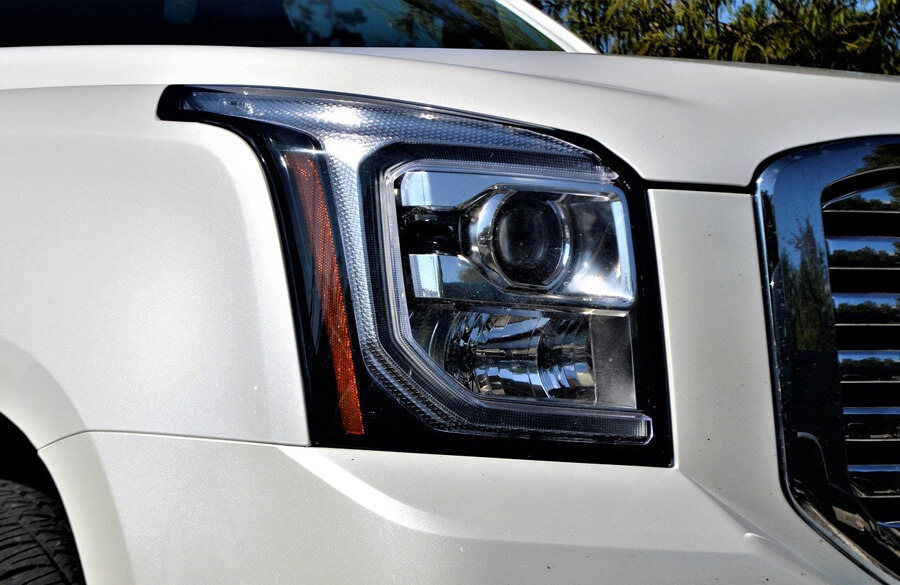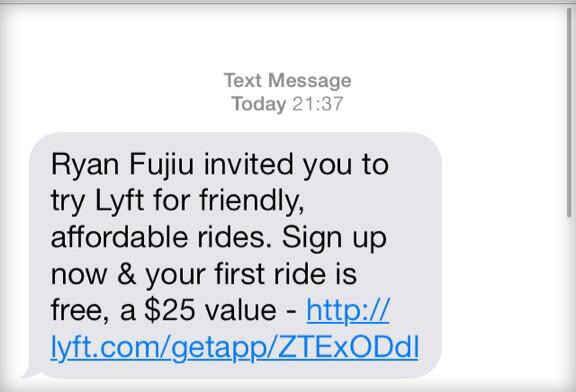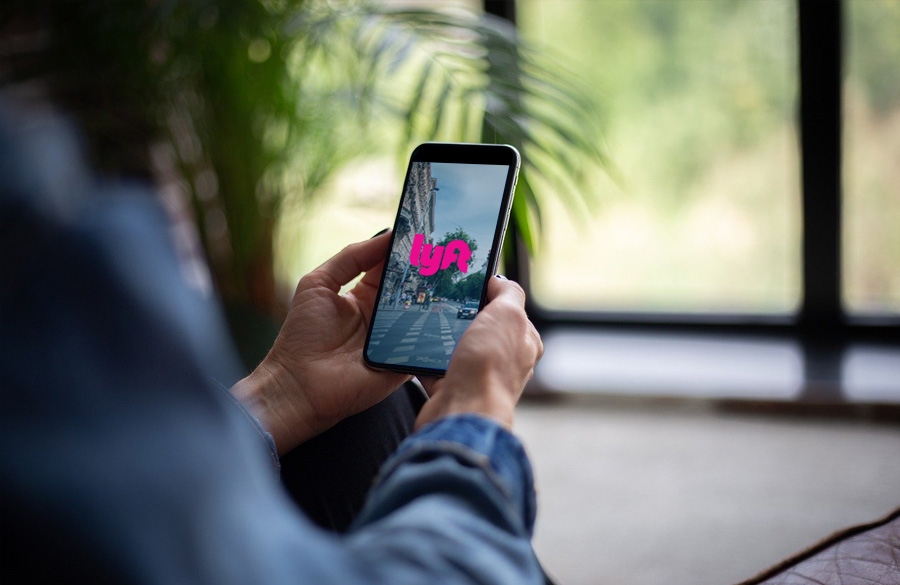Lyft Scams: Meet the Dark Side of Ride-Sharing Services
Ride-sharing services offer their users a great level of convenience and easy transfer from one location to another. Lyft has been in business for eight years and boasts 30 million riders and 2 million drivers in the United States and Canada.
However, just like Uber, Gett or Grab, Lyft also exposes both its riders and drivers to scams. Despite the hiccup during the COVID-19 crisis, all these ride-sharing services will have even more stake in the future because they have proven to be useful than ever.
Scam Detectors Most Trusted Websites in Online Security
- Guard.io (100): Surf the web safely. Clean up your browser, remove maliscious extensions and check for privacy violations.
- Incogni.com (100): Delete your personal data from the internet and protect against scams and identity theft.
- ExpressVPN (100) Stay secure and anonymous online - Best VPN Out There
Let's take a look at the nine most popular Lyft scams that you may ever come across. Some of these scams affect drivers while others affect passengers. If you don't want to fall victim to any scams listed below, make sure to educate friends, families, users or employees about them. Feel free to share your experience in the Comments section at the end of the article.
Below is the list – the first six scam are affecting the passenger while the last three are targeting the drivers.
1. Lyft Cleaning Fee Scam
There have been a few instances where drivers have reported passengers questionably. There have been reports of drivers who have charged passengers for a Lyft cleaning fee — for a mess they didn't make or for a claim that they had damaged the car somehow.
These charges may sometimes cost about $200 or higher. Other reports have shown passengers being tricked to pay for a false number of passengers or people, meaning they had to pay for people they didn't ride with.

To deal with this scam is a bit difficult, as you can't avoid it if the driver is really ill-intentioned. However, make sure you are not loud, annoying and disrespectful – as these extra charges seem to occur as revenge for when a bunch of friends take the ride drunk and give the driver a hard time.
If you feel the Lyft driver is mean, take a picture of the interior of the vehicle during the trip and when exiting the vehicle. The timestamp of the photo would serve as proof of your actions.
Taking this picture with the consent of the driver will probably prevent any fraudulent charges at all. However, you have to make sure that you don't offer nice drivers a reason for making them feel you doubt their integrity.
2. New Device Signing into Your Lyft Account
The scam targeted Uber users in the past, too. It is a typical scam email sent usually in regards to any kind of social media account unusual sign-in. Victims receive a message that looks very official – resembling the Lyft admin, notifying users of some sort of unusual activity on their accounts. The email says: “New device sign in. Your Lyft account was used to sign-in on the following device. Please review the details below to confirm it was you.”
As the victims panic knowing they haven't signed into their Lyft accounts from a different device, they access the link provided by the scammers. This way, they give access to their app by offering their password to the crooks via the fake sign-in page.

3. Ride Not Finished
Another tactic is when the driver fails to end the ride when you exit the vehicle. This means, that you may be charged for a few m§ore blocks longer than the actual distance. Make sure to check the app and verify that the ride has ended before walking away.
Also, look out for any scam drivers who only pretend to be from Uber/Lyft but are independent service providers. These drivers usually charge higher than the popular brands. Never enter a vehicle that doesn't match the one that the app is showing.
4. Lyft Cancellation Fee Scam
This one works when the driver doesn't show up and then you still have to pay a fee to cancel the service. The cancellation fee is a big problem and its existence is questionable. Surely, most people would dispute against paying this fee. If you fail to dispute the fee, you'll just end up losing money every time.
Here's how to keep yourself from losing money. Don't cancel a ride if you've been ditched. Instead, take a screenshot of the current status of your app. Next, request another ride from the service provider. As soon as the ride is transferred to another driver, then you may decide to take or cancel it; this time you'll pay nothing. After this, you should get in contact with the service provided (either Uber/Lyft and other ride-sharing services). If this driver, has a history of no-shows then you know what is likely going to happen.

Another variation of this cancellation scam may take the form of when the driver is pretending to have a language barrier or not clear about the trio details. As soon as you get into the vehicle, you'll get a notification that the trip was canceled by the driver. The driver may then pretend to not hear any objections or even claim that you got into the vehicle but will then take you to your destination at a more expensive price. The original trip won't be recorded since it was canceled by the driver.
A solution to save yourself from this scam is to make sure that the driver has turned on the app before getting into the vehicle. This way, the trip will be recorded and you'll be able to make your complaint to the service provider. Avoid agreeing to a rescheduled trip at a higher price.
5. Ignorance Tricks
Some popular scams involve acting on the ignorance of passengers and these scams have existed for quite some time now. It's important to point these out to keep you from falling victim to them.
A popular variant is when the driver asks for more cash for “whatever” reason. Keep in mind that the price for the whole trip is to be paid via the app.
Taking a “long way” is another way to cost you more money. Despite the technological advancements of this age, it still happens. Don't hesitate to punch in your details into a GPS application to make sure that you're on track.
6. Lyft Text Messages
There are a plethora of Lyft customers that are receiving not just phishing emails, but text messages too. They ask users to change their password via a link, which is a fake (see below) and only a plot to steal the login credentials. Never change your password via a link. Do this only on the app itself.

7. Lyft Mid-way Cancellation
That happens, as the title implies when a passenger decides to cancel in the middle of a trip, affecting the driver. Certain reports have indicated that a passenger may cancel a trip to reduce the cost of it. This is why the drivers must keep their eyes on the app and monitor any notifications that they receive.
A great idea is to connect the phone to the Bluetooth speakers of the car, you can hear the notifications come in and know of any changes that the passenger has made to the trip.
8. Lyft Fake Complaints
Certain passengers may file fake complaints to earn them refunds or free rides, or it may be a step too far caused by a misunderstanding. The complaints may consist of several fraudulent claims saying that the driver was reckless, abusive or failed to show up. Passenger complains are taken seriously and could lead to serious action such as suspension or deactivation.
To handle this situation, you would need to get a dashboard-mounted video camera that can record for a few days. This may be illegal in some states and you have to make sure that it is permissible in yours. Also, get a means to store the footage.
Another way to deal with complaints is to ask Lyft to contact other passengers which you drove during that period to back up your claim.
9. Malicious Emails and Links for Drivers
Passengers are not the only ones vulnerable to phishing emails leading to identity theft. These scams usually take the form of emails that are crafted to ask for the two-factor codes which have been texted to the driver, redirect them to a malicious link or even ask for their passwords.
All of these are done under the pretense of offering the driver special bonuses or promotions. If the driver falls victim to this scam, it could lead to identifying theft or financial losses.
Keep in mind that Lyft rarely calls their drivers. However, when making contact they never ask for account details or any personal information. Do not share any of your personal information or any codes you receive by text with a strange third party.
That's it. We hope you keep yourself safe from any kind of ride-sharing tricks. Watch the video below to see in video format the most common Lyft scams exposed:
Lyft Ride-Share: How To Report a Scammer
Warn your family and friends about these nine Lyft scams by sharing this article on social media using the buttons provided. You can also officially report the scammers to either Lyft and the Federal Trade Commission using the link below:
How To Prevent Identity Theft and More
If you want to be the first to find out the most notorious scams every week, feel free to subscribe to the Scam Detector newsletter here. You'll receive periodic emails – we promise not to spam. Meanwhile, educate yourself with some other fraud-related articles right under this paragraph, so you can protect yourself in many other aspects and niches. Last but not least, use the Comments section below to expose other scammers.
Here are some must-reads for the end:
Bad Credit: Auto Loans Fraud
Bed Bug Treatment Scam
Final Expense Life Insurance Scam
Post Office: Change of Address Scam
Government Surplus Auctions Scam
Verify a website below
Are you just about to make a purchase online? See if the website is legit with our validator:
vldtr®


TOP 4 MUST-WATCH FRAUD PREVENTION VIDEOS
1. Top 5 Amazon Scams in 2024 2. Top 5 PayPal Scams in 2024 3. How To Spot a Scam Email in 2024
- Latest Posts by Selma Hrynchuk
-
Compromised Credit Card Scam
- -
Fake Google Chrome Update
- -
Facebook Privacy Notice Hoax
- All Posts














Got a text from an unknown number saying get paid $1000 a week for 6 weeks to display the Lyft logo on my car through Wix. https://lyfftinc. wixsite.com/lyft
Have bug report that involves Lyft 501 area code is this normal
I got a text from some odd 510 number saying a pin and that’s when I realized something was not ok port 53?